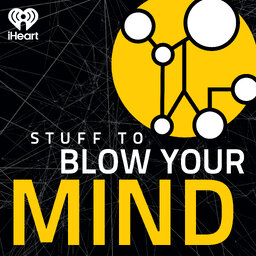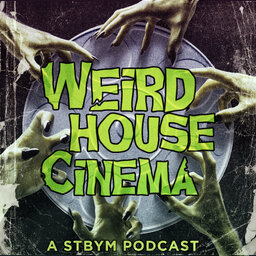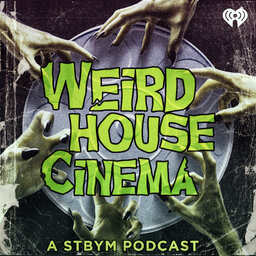Weirdhouse Cinema Rewind: The Bride of Frankenstein
In this classic episode of Weirdhouse Cinema, Rob and Joe discuss the amazingly weird and wonderful 1935 horror classic “The Bride of Frankenstein.” Has the doctor put his monster-making days behind him, or can he be tempted to even greater crimes of mad science by an even madder scientist? Find out… (originally published 10/20/2023)
In 2 playlist(s)
Stuff To Blow Your Mind
Deep in the back of your mind, you’ve always had the feeling that there’s something strange about re…Social links
Follow podcast
Recent clips

Crab Bag, Part 3: The Crab is a Lonely Hunter
55:55

Weirdhouse Cinema Rewind: La Loba (1965)
1:30:07

From the Vault: Mystery Cults, Part 4
1:00:23
 Stuff To Blow Your Mind
Stuff To Blow Your Mind
